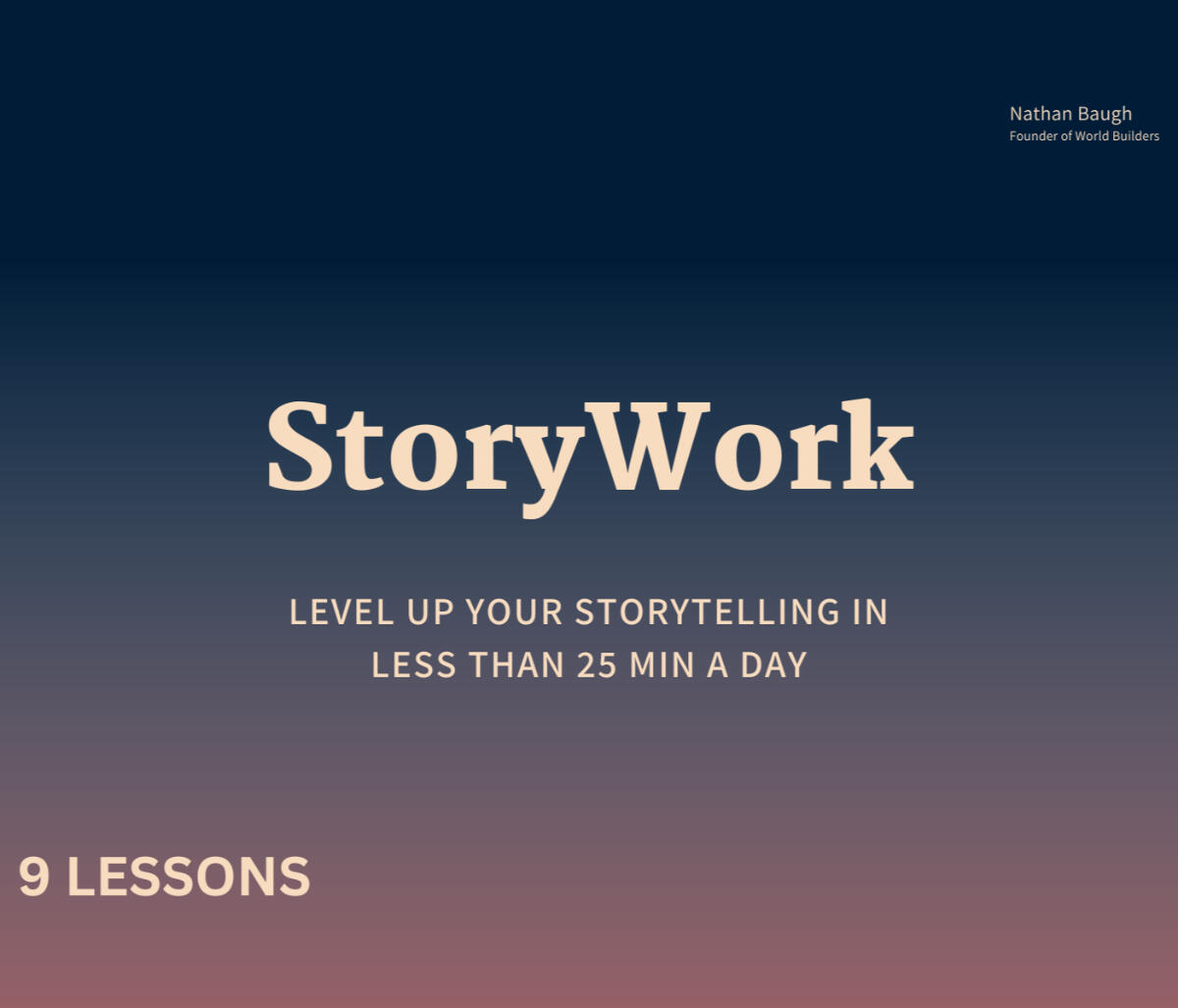- World Builders
- Posts
- Promises & Payoffs
Promises & Payoffs
A powerful lesson on framing from Lord of the Rings
Hey – it’s Nathan. A bit scared to ask, but would love your feedback on the newsletter as we get into Q1.
Last week’s hook stumped quite a few of you. Let’s see how you fare this time… hit me with your best guess:
“In a hole in the ground there lived a [removed]. Not a nasty, dirty, wet hole, filled with the ends of worms and an oozy smell, nor yet a dry, bare, sandy hole with nothing in it to sit down on or to eat: it was a [removed]-hole, and that means comfort.”
Last week: Tangled


One of my favorite scenes from any movie is at the end of The Battle of Helm’s Deep in Lord of the Rings: The Two Towers. The keep is being overrun. Aragorn and Theoden look defeated. You can feel hope fading. Then, as the sun rises, Gandalf appears on a distant hill with an army to save the day.
But the brilliance of the scene actually comes 10 minutes prior, when Gandalf tells Aragorn:
“Look to my coming at first light on the fifth day. At dawn, look to the east.”
Peter Jackson, the director of the Lord of the Rings trilogy, uses a framework called Promises and Payoffs:
You make a Promise to the audience about what's to come. In turn, they look forward to seeing that happen. When you as the storyteller fulfill the Promise, your audience is rewarded with a moment of Payoff.
Here’s how that plays out at the Battle of Helm’s Deep.
Promise: By saying he'll return after five days, Gandalf implies that if the keep holds out until then, he’ll save the day. It’s a promise to Aragorn and to the audience. Now, the audience understands Aragorn’s goal is not to win the battle but to survive long enough so Gandalf can return. Huge difference.
Payoff: We, the audience, know Gandalf said he’d come back. But the situation is dire. Will he show up? Even if he does, will it be too late? Jackson does a great job of making Aragorn and co earn the Payoff. They're taken to the brink. Then Gandalf appears on that hill, and the audience goes wild. The story “pays off” its promise.
It also plays the other way. If you make the wrong promise, your audience won’t leave satisfied no matter how well you tell the rest of the story. So, if your story's falling flat, examine your Promises.
Ask yourself: What Promise did I make? Are we making progress toward those Promises? Does the story make good on that Promise?
Storytelling structure is well documented. But most of the attention goes to the Hero's Journey, Three Act Structure, and the Seven Point Story Structure. While those are great, they can be quite rigid.
And there's an art to storytelling that requires flexibility. Promises and Payoffs are loose enough to provide that flexibility while still giving you a frame to work within.
What I like to do: Start with the Payoff. Your Payoff is your end goal, your big moment, your Gandalf cresting the hill. Then you work backward to design your Promise and the rest of the story to build to that moment.
Talk next week.
– Nathan
What'd you think of today's newsletter? |

StoryWork
The interest in this tweet blew me away...
One way to become a better storyteller:
Take your two favorite authors. I recommend one non-fiction and one fiction.
Copy, word for word, their best work. Do it by hand.
I chose Paul Kalanithi and Neil Gaiman.
It’s the single exercise that improved my writing the most.
— Nathan Baugh 🗺️ (@nathanbaugh27)
3:06 PM • Jan 5, 2023
In my experience, there are two ways to get good at storytelling:
Study the greats (what this newsletter is for)
Practice, practice, practice
I do a lot of practice through what I call 'StoryWork.'
So many of you liked, commented, and sent me DMs about the practice I decided to turn it into a guided course.
Check it out:

Storyteller's Finds
🗞️ Video: I had to chop them from today's newsletter, but The Return of the King had two of my favorite scenes. This one and this one.
📹 Video: Brandon Sanderson digs deep on Promises, Progress, and Payoff. He champions the framework more than any other author.
📜 Stat: The highest-grossing IP in history, with Pokemon well out in front.
💎 Gem: Get to the point.
Some writing advice.
— David Perell (@david_perell)
3:39 AM • Jan 20, 2023
